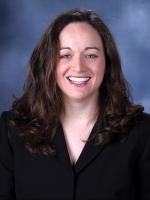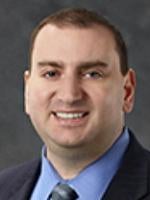Takeaway:
-
Expenses incurred by USPTO during a 35 U.S.C. § 145 appeal include a pro-rata share of the incurred attorneys’ fees.
-
The American Rule denying attorneys’ fees to the prevailing party does not apply when applicable statute specifically and explicitly authorizes the award of attorneys’ fees.
Procedural Posture:
Nantkwest appealed from a district court decision awarding the USPTO expert witness fees, and the USPTO appealed the district court decision denying attorneys’ fees for a 35 U.S.C. § 145 appeal. The CAFC (i) reversed the district court’s decision denying attorneys’ fees and (ii) upheld the district court’s decision awarding expert witness fees.
Synopsis:
-
Remedies – Attorneys’ Fees: The CAFC reversed the district court’s decision denying attorneys’ fees incurred by the USPTO during a 35 U.S.C. § 145 appeal. The principal issue was whether 35 U.S.C. § 145, which states in pertinent part that “[a]ll the expenses of the proceedings shall be paid by the applicant,” authorizes the award of the USPTO’s attorneys’ fees. The CAFC rejected application of the “American Rule,” which requires litigants pay their own attorneys’ fees regardless of the outcome of the case, because here a statute specifically provided otherwise. The CAFC held that the term “expenses” in 35 U.S.C. § 145 includes attorneys’ fees, and it further determined that the pro rata share of the attorney’s salaries – including the Solicitor, his deputy, and his associates – are recoverable even though the USPTO is obligated to pay these employees regardless of the lawsuit. The CAFC reasoned that the USPTO dedicated the time and resources of its attorneys to the defense of this litigation when it could have applied those resources to other matters. Therefore, the CAFC concluded that § 145 entitled the USPTO to compensation for the diversion of its resources in the defense of § 145 appeals.
-
Dissent (Stoll): In his dissent, Judge Stoll stated that the American Rule erects a strong presumption against fee-shifting, requiring an explicit statutory provision permitting a departure from the Rule, or some other evidence of congressional intent to make such an award available. According to the Judge Stoll, § 145 neither mentions the recovery of “attorneys’ fees,” nor reflects a congressional intent to authorize such recovery when the statute was enacted. Thus, he concluded that the definition of expenses applied by the majority does not comport with the definition of expenses at the time the statute was amended in 1839 to require the payment of expenses. Judge Stoll further noted that Congress’s frequent use of “expenses” and “attorneys’ fees” in other statutory provisions indicates that “[a]ll the expenses of the proceedings” does not necessarily include attorneys’ fees, except where explicitly mentioned.






 />i
/>i

